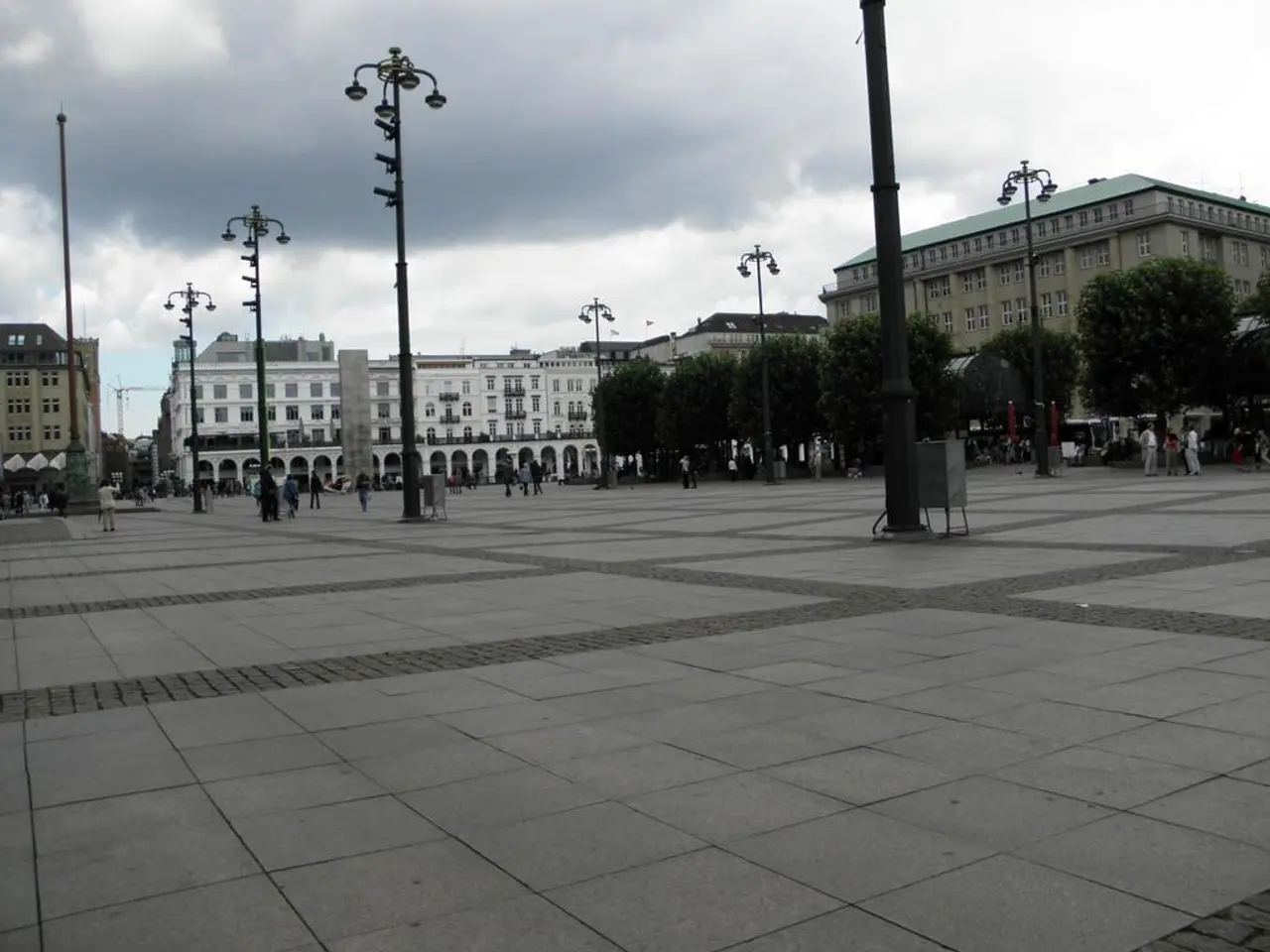Workers' Safety from Ionising Radiation Risks Secured with Proposed Directive by Commission
In a significant turn of events, the nomination of Frauke Brosius-Gersdorf for the Federal Constitutional Court has been withdrawn, marking a major crisis for the ruling coalition between the Social Democratic Party (SPD) and the CDU/CSU.
The withdrawal came as a result of strong opposition from the CDU/CSU parliamentary group, which rejected her election due to her progressive stances and unproven allegations of plagiarism. Brosius-Gersdorf, known for advocating for the liberalization of abortion laws and supporting a ban on the far-right AfD party, decided to withdraw to prevent the breakdown of the coalition and protect other judicial candidates whose appointments were tied to the same package deal.
This decision has highlighted deep divisions within the coalition, threatening to weaken government cooperation. The failure to elect Federal Constitutional Court judges, a process usually considered a formality, has exposed mounting tensions, particularly due to ideological disagreements and the politicization of judicial appointments.
Chancellor Friedrich Merz publicly defended Brosius-Gersdorf, but the internal party resistance was too strong. The controversy has intensified broader societal debates in Germany on abortion and the role of the Constitutional Court in political questions.
The coalition now faces a new problem: finding the necessary two-thirds majority in the Bundestag for their candidate's election. The CDU and CSU could not guarantee the support promised to the SPD, leading to the postponement of the election.
SPD Bundestag member Ralf Stegner described Brosius-Gersdorf's withdrawal as a "first victory" for the far-right, while SPD faction leader Matthias Miersch wrote that the CDU and CSU must commit to the rules of government. The Left's leader, Ines Schwerdtner, criticized the events surrounding Brosius-Gersdorf, stating they reflect poorly on the federal government.
The Left has demanded a right of proposal and a seat at the table for future judicial elections in the Bundestag. Alexander Schweitzer, the Rhineland-Palatinate Minister President and Vice-Chairman of the Federal SPD, called for better cooperation within the coalition. Jens Spahn, Union faction leader, was criticized for not keeping his faction in check.
The election of Brosius-Gersdorf and two other candidates for the Federal Constitutional Court was postponed due to resistance in the Union faction. The coalition now faces the challenge of finding a candidate who can secure the necessary votes, while also maintaining the stability of their partnership amid ideological conflicts and high-stakes political appointments.
[1] Brosius-Gersdorf withdraws from Federal Constitutional Court nomination
[2] Brosius-Gersdorf's withdrawal from Federal Constitutional Court nomination
[3] Brosius-Gersdorf's withdrawal from Federal Constitutional Court nomination
[4] Brosius-Gersdorf's withdrawal from Federal Constitutional Court nomination
[5] Brosius-Gersdorf's withdrawal from Federal Constitutional Court nomination
[1] The withdrawal of Brosius-Gersdorf from the Federal Constitutional Court nomination has been a significant development in the realm of policy-and-legislation, highlighting the ongoing politicization of judicial appointments.
[2] The divisive politics surrounding Brosius-Gersdorf's withdrawal from the Federal Constitutional Court nomination has led to a closure of discussions on abortion laws and the role of the court in political questions, causing general-news concern.








